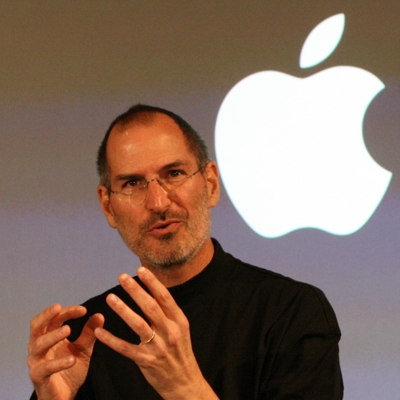When we talk about bad companies, we don’t mean bad in the sense that they did bad things. We mean bad in the sense that the company wasn’t fulfilling what it was meant to be doing. Either they were letting their employees down or missing the mark product and service wise as far as its customers were concerned.
At Fueled, we strive to provide excellent customer service and products that make a difference in our customer’s lives. Sometimes companies just have other priorities, though.
Below is a list of five companies that were bad at dealing with their employees or customers for a time but then managed to turn themselves around.
Apple
Who can forget the fact that Apple was floundering from 1985 until 1997, when Steve Jobs finally became CEO. Apple’s stock prices had been plummeting and the board was faced with many difficult decisions.
Jobs came in and breathed new life into the company; he reduced the amount of projects that were in development and focused more on products that consumers would actually want to use. He was directly responsible for developing the iMac, the iPod, iTunes, and the iPhone. Jobs infused Apple with a new brand aesthetic that it really needed and catapulted it into the popularity it has now reached.
During his time as CEO, he also increased Apple’s stock price by more than 9,000%. Not only did he help customers by providing new and innovative ways to access media, he helped his employees by ensuring that the company continued to stay afloat. After his passing three years ago, what remains at Apple is now his legacy.
General Motors
After GM filed for bankruptcy in 2007, they turned to Ed Whitacre in 2009 to restore the company to its former glory days. The quality of their cars had declined and Whitacre focused on streamlining the company’s holdings by launching the biggest IPO in history, at $23.1 billion.
With the company steadily getting back on track by doing what it does best, trucks and family cars, Whitacre retired in September 2010. The company has continued to exceed customers expectations and retain current employees.
Sprint
Sprint was on the decline in 2007, reporting losses at over $29.5 billion after merging with Nextel Communications. Dan Hesse entered as the new CEO to keep the company from entirely going under and worked hard to bring Sprint back in line, creating a new “Simply Everything” rate plan in 2008.
However, Sprint was not quite back on track, losing 5.1 million subscribers in 2008. Customer satisfaction was low, but customer service ratings were high. In 2009, Sprint acquired Virgin Mobile USA which allowed them to move into the prepaid mobile market. In 2010, positive subscriber growth was noted for the first time in over three years.
Customer service and satisfaction are now something that Sprint is known for, helping customers get the most out of their cell phone plans.
Campbell’s Soup
After a bad decision to raise prices by management, Campbell’s Soup lost half of its market value in 2001. Doug Conant was brought in to bring the food company back to its former glory.
Conant’s focus was on employee engagement, as he believed that the key to a successful company was through its employees. Within his first few months, he restructured the management team, replacing 300 managers out of the top 350, while implementing 10 year plan aimed to turn the company around. By doing this, Campbell’s stock outperformed the Standard and Poor’s Index and brought employee engagement to an all time high.
Merck & Co
In 2005, Merck & Co was clouded in scandal – one of it’s drugs, Vioxx, had to be pulled from the market because it was linked to heart attacks and several deaths. It wasn’t exactly a company that people were in a hurry to work for or purchase drugs from.
Richard Clark was tasked with the role of CEO, closing five manufacturing plants and cutting back 7,000 jobs to focus on approval for eight new drugs that were in development. He cleaned up the company and ensured that consumers were presented with a drug that wasn’t going to kill them or cause further issues.
By Diana Zelikman. Written by the editors at Fueled. We develop iPhone and Android apps.





